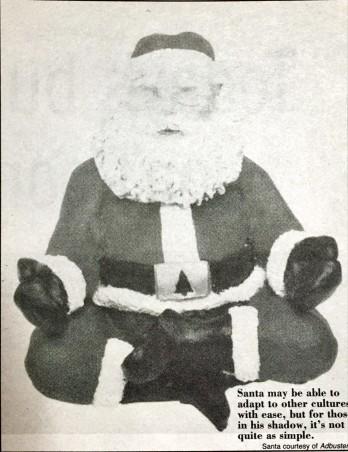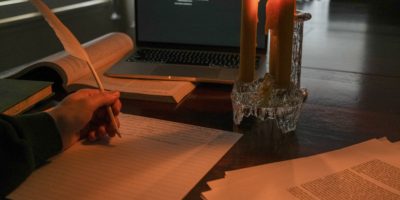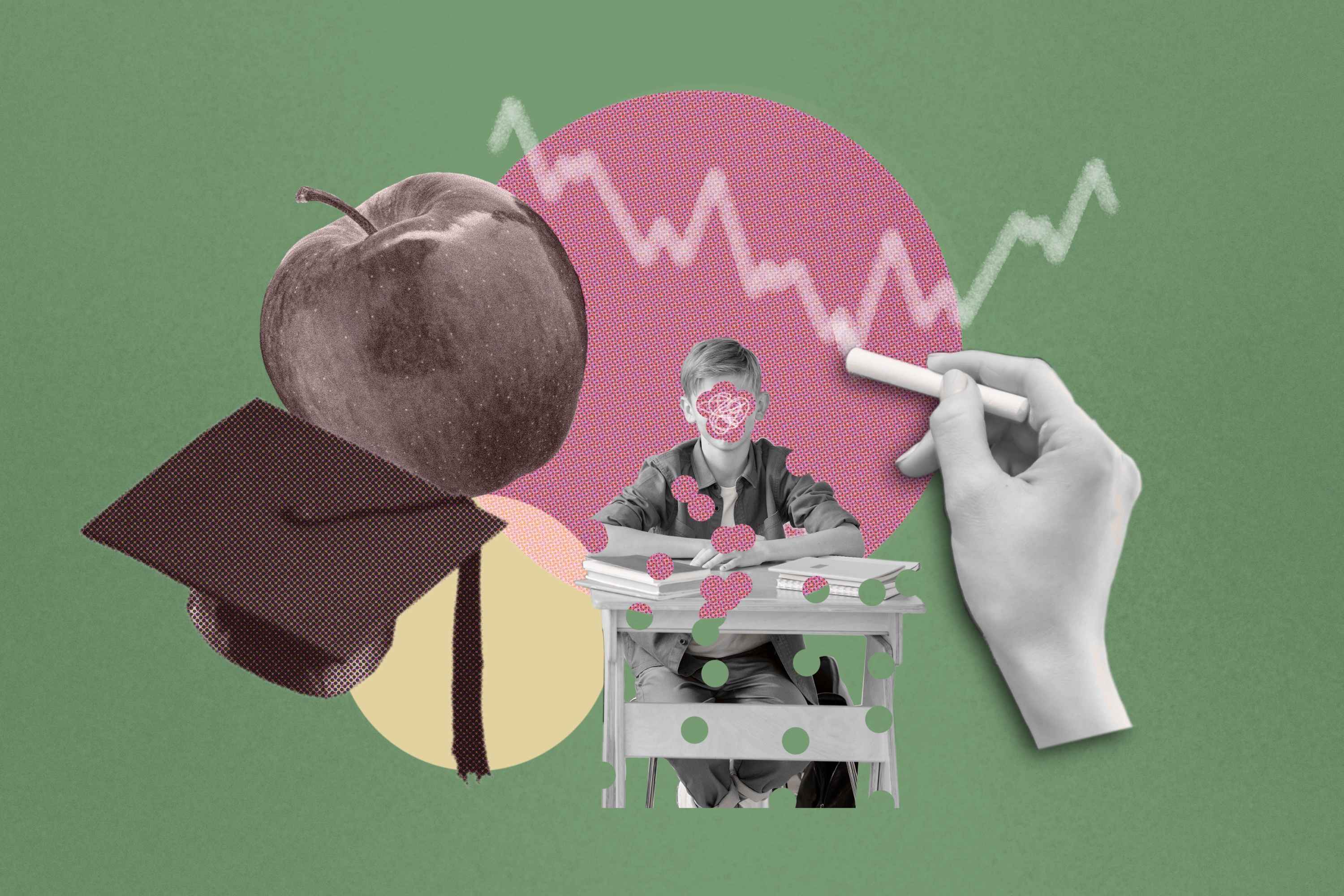By Rachelle Younglai
To some, it might not seem like a big event. The yearly invasion of glittering garland and baubles hanging from plastic tress decked with twinkling lights has become and ingrained image in our society.
But supposing Christmas wasn’t part of your yearly winter ritual, it would seem western culture consist of the most tacky people with the most tacky celebrations on the planet. It’s everywhere — the Santa Claus parade shuts down a section of Toronto for the morning. Post offices display signs telling kids to send their letters to the North Pole. Malls are resurrecting Santa booths and retailers will soon be seducing their shoppers with incessant Christmas jingles as Hollywood launches a holiday movie onslaught.
During this time, non-Christian cultures and faiths are overshadowed by Christ’s massive birthday party. Even though other cultures and faiths are ambivalent towards Christmas, they can’t help but notice this all-encompassing celebration. And for some, they have to struggle to retain their identity during this time.
“It’s assumed [by popular culture] that everyone celebrates Christmas,” says Harriet Wichin, the cultural arts and community director at a downtown Jewish community centre. “It’s everywhere.”
Signs of Christmas are not just in stores. They are in neighbourhoods, restaurants, and pretty much every public space. But the annual battle against the cultural Christmas dominance results in a stronger sense of identity for the religions that aren’t a part of the holiday hoopla.
Wichin, who is Jewish, says her house is the only one on her street with no lights. She says that it’s easy for children to feel left out at this time of the year.
“Even non-religious people participate,” she says. “People want to get into the spirit of things.”
Parents struggle with how to pass their cultural identity onto their children while living in a secular multicultural city and for some, the question of identity is difficult.
“Unless the parents have a strong faith it’s hard,” says Zaahida Sijka-Shalik, a practicing Muslim and mother of two. Sijka-Shalik says the media and popular culture can be influential in shaping someone’s identity, which can be contrary to someone’s faith.
“It’s a challenge that all parents go through,” says Wichin. But many parents say that challenge fosters a sense of cultural pride.
Other than Christmas, some of the holidays celebrated in the winter months include the Islamic celebration of Ramadan, Judaism’s Hanukkah and Kwanzaa, which celebrates African heritage and culture. While most people who don’t celebrate these festivities are at least aware of them, they may not be aware of the effect Christmas has on those who celebrate them.
Some Jewish community leaders say that the holiday frenzy has turned Hanukkah, a relatively minor Jewish holiday, into a much bigger celebration.
“There’s a feeling of competition with Christmas,” says Joan Schoenfeld, the principal of The Jewish Community School in the Bloor JCC (Spadina Ave. and Bloor St. W.).
“Hanukkah is blown out of proportion,” adds Barbara Bock, a Jewish mother of two. “It’s a minor, minor holiday.”
Now parents feel pressure to give more and kids expect more, but Hanukkah is not the ‘Jewish Christmas.’ It means “dedication” and is referred to as the Festival of Lights. This eight-day, 2,000-year-old holiday celebrates an accident victory of Jews over their enemies.
What parents choose to do sometimes depends on how they felt as a child, Bock says. If you felt alienated, you don’t want your child to feel that, she explains. But Bock admits that it can be confusing if children participate in Christmas rituals in order to fit in with their peers.
Kwanzaa, a celebration that takes place from Dec. 26 to Jan. 1, was created to reaffirm and restore African culture and identity.
Kwanzaa — which means “first fruits” in Swahili — was founded in 1966 by Dr. Maulana Karenga, a professor and chair of Black studies at California State University. Karenga chose to name the celebration in Swahili because it is the most widely spoken African language.
Kwanzaa was also designed to strengthen the sense of community and reinforce the Nguzo Saba, the seven principals of African values — unity, self-determination, collective work, responsibility, cooperative economics, purpose, creativity and faith.
“We come together in the spirit of family and community,” says Itah Sadu, one of the owners of A Different Booklist, a bookstore specializing in culturally diverse literature. Sadu has celebrated Kwanzaa for the past two decades and says the holiday is becoming more mainstream. Hallmark has a row dedicated to Kwanzaa cards and newspapers feature stories on Kwanzaa. This is positive, she says, because it creates more awareness and people are less apt to mistake Kwanzaa as the “African Christmas.”
“People thought Kwanzaa was a Christmas for black folk,” she says. “It’s not an alternative to anything.”
For people who celebrate those holidays, it’s all about working faith and culture into your surroundings. It’s getting easier, though, which indicates an increasing acceptance of other religious and cultural practices in multicultural Toronto.
In the International Student’s Centre at the University of Toronto, there is a room designated as a place for Muslims to pray. Although post secondary schools have class breaks during Christian events, schools will make concessions for other religious holidays. At Ryerson, students have the option of rescheduling exams if they happen to fall upon one of their religious holy days.
Ali Ghayyur, a Muslim, teaches at both Sheridan and Napalese Colleges. He says his class time occasionally falls on times when he is supposed to pray.
“I can’t stop classes to pray,” he says. Also, during Ramadan, Ghayyur does not eat during his regular teaching breaks.
Instead, Ghayyur eats after his evening class and prays whenever he can.
And on his lunch break he goes to the International Student’s Centre to pray. “Those who are willing will find a way,” he says.
And for people whose faith is strong, Christmas might be overbearing in shopping malls, but it’s not a factor in their religion. “It doesn’t interfere with me,” says Sefirkul Kahn, principal of the Islamic day school at the Islamic Foundation on Nugget Street. The Muslims’ holiest event, Ramadan, is taking place this year during the pre-Christmas hype from Nov. 17 to Dec. 17. During this time, Muslims fast from sunrise to sunset and offer prayers five times a day to Allah.
“It’s an exercise of real will power and strength,” says Kahn.
The adaption that has been developed shows how little this society knows about non-Christian cultures. What happens at Christmastime is just a microcosm of the other 11 months.
So Bock, like many other non-Christians, enrols her children in religion-specific schools. It giver her kids a sense of belonging and understanding in their culture, she says.
Cynthia Lazare, founder of The Downtown Jewish Day School at Clinton and College Streets points out that children would not learn anything about Judaism from the public whereas Christians and non-Christians can learn about Christmas and Easter from popular culture.
And Sijkk-Shalik agrees in the value of religious specific schools. “Unless you have a strong faith, public education is not good because the most important thing for a Muslim child to learn is the Koran,” she says. For now Sijka-Shalik is homeschooling her children and intends to send them to an Islamic school when they are older.
“It’s more important in a pluralistic society to know our heritage,” says Schoenfeld.
At schools such as the Islamic Day School and the Jewish Day School, there is no mention of Christianity except in comparative religious classes. The emphasis is placed on their religion and culture and the schools make concessions for their holidays. For example at Jewish schools, students do not have a March break, rather they take time off during Passover.
Kahn agrees and says students at Islamic schools need to understand their faith. In addition to following an Islamic curriculum, courses are offered in Arabic. “We try to ensure that kids come out with an Islamic personality,” Kahn says, explaining that Islam is not just a religion, but a way of life — from the way you wash your hands to the food you eat.
Community and social centres are havens from the barrage of Christmas images. At the Jewish Community Centre at Spadina Ave. and Bloor St., the walls are devoid of any religious symbols.
“[The JJC] gives people a break from the outside world,” says Wichin. “At least here you know kids aren’t making pictures of Santa Claus, trees and managers.”
During Kwanzaa, Sadu’s bookstore encourages people to come in and shift through books while sharing cultural stories.
The bookstore, located on Bathurst St. just south of Bloor. St. is like a community centre. Sadu and Robin Battle, another owner, greet many of their customers by name and embrace them when they leave. “People gravitates to this place,” says one of their regular customers. “There are not a lot of African bookstores in this city.”
And gravitate they do. At 6:15 p.m. on Friday night, the bookstore is packed with customers. People have to squeeze by each other as they peruse through the shelves of books.
“Our community has so much history living in this area,” Sadu tells a group of students standing in front of her. “It’s one of the few places where black folk could rent a room. Black businesses have flourished in this area.”
When asked if Christmas is an intrusive holiday, Sadu says, “we love Christmas because we’re in retail.”













Leave a Reply